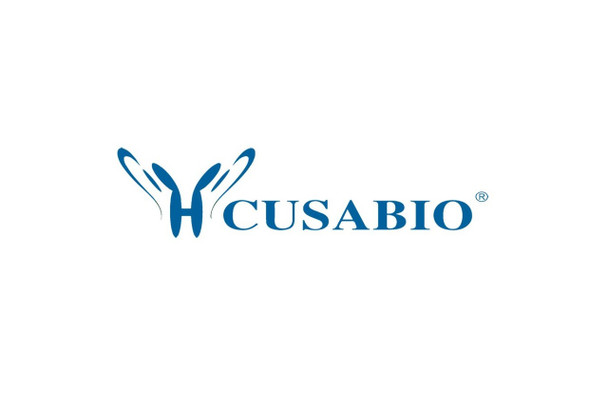Cusabio Human Recombinants
Recombinant Human Tissue-type plasminogen activator (PLAT), partial | CSB-EP018120HU
- SKU:
- CSB-EP018120HU
- Availability:
- 13 - 23 Working Days
Description
Recombinant Human Tissue-type plasminogen activator (PLAT), partial | CSB-EP018120HU | Cusabio
Alternative Name(s): INN: AlteplaseINN: Reteplase
Gene Names: PLAT
Research Areas: Cancer
Organism: Homo sapiens (Human)
AA Sequence: SYQVICRDEKTQMIYQQHQSWLRPVLRSNRVEYCWCNSGRAQCHSVPVKSCSEPRCFNGGTCQQALYFSDFVCQCPEGFAGKCCEIDTRATCYEDQGISYRGTWSTAESGAECTNWNSSALAQKPYSGRRPDAIRLGLGNHNYCRNPDRDSKPWCYVFKAGKYSSEFCSTPACSEGNSDCYFGNGSAYRGTHSLTESGASCLPWNSMILIGKVYTAQNPSAQALGLGKHNYCRNPDGDAKPWCHVLKNRRLTWEYCDVPSCSTCGLRQYSQPQFRIKGGLFADIASHPWQAAIFAKHRRSPGERFLCGGILISSCWILSAAHCFQERFPPHHLTVILGRTYRVVPGEEEQKFEVEKYIVHKEFDDDTYDNDIALLQLKSDSSRCAQESSVVRTVCLPPADLQLPDWTECELSGYGKHEALSPFYSERLKEAHVRLYPSSRCTSQHLLNRTVTDNMLCAGDTRSGGPQANLHDACQGDSGGPLVCLNDGRMTLVGIISWGLGCGQKDVPGVYTKVTNYLDWI
Source: E.coli
Tag Info: N-terminal 6xHis-SUMO-tagged
Expression Region: 36-556aa
Sequence Info: Partial
MW: 74.3 kDa
Purity: Greater than 90% as determined by SDS-PAGE.
Relevance: Converts the abundant, but inactive, zymogen plasminogen to plasmin by hydrolyzing a single Arg-Val bond in plasminogen. By controlling plasmin-mediated proteolysis, it plays an important role in tissue rodeling and degradation, in cell migration and many other physiopathological events. Plays a direct role in facilitating neuronal migration.
Reference: Cloning and expression of human tissue-type plasminogen activator cDNA in E. coli.Pennica D., Holmes W.E., Kohr W.J., Harkins R.N., Vehar G.A., Ward C.A., Bennett W.F., Yelverton E., Seeburg P.H., Heyneker H.L., Goeddel D.V., Collen D.Nature 301:214-221(1983)
Storage: The shelf life is related to many factors, storage state, buffer ingredients, storage temperature and the stability of the protein itself. Generally, the shelf life of liquid form is 6 months at -20?/-80?. The shelf life of lyophilized form is 12 months at -20?/-80?.
Notes: Repeated freezing and thawing is not recommended. Store working aliquots at 4? for up to one week.
Function: Converts the abundant, but inactive, zymogen plasminogen to plasmin by hydrolyzing a single Arg-Val bond in plasminogen. By controlling plasmin-mediated proteolysis, it plays an important role in tissue remodeling and degradation, in cell migration and many other physiopathological events. Plays a direct role in facilitating neuronal migration.
Involvement in disease: Increased activity of TPA results in increased fibrinolysis of fibrin blood clots that is associated with excessive bleeding. Defective release of TPA results in hypofibrinolysis that can lead to thrombosis or embolism.
Subcellular Location: Secreted, extracellular space
Protein Families: Peptidase S1 family
Tissue Specificity: Synthesized in numerous tissues (including tumors) and secreted into most extracellular body fluids, such as plasma, uterine fluid, saliva, gingival crevicular fluid, tears, seminal fluid, and milk.
Paythway: Complementandcoagulationcascades
Form: Liquid or Lyophilized powder
Buffer: If the delivery form is liquid, the default storage buffer is Tris/PBS-based buffer, 5%-50% glycerol. If the delivery form is lyophilized powder, the buffer before lyophilization is Tris/PBS-based buffer, 6% Trehalose, pH 8.0.
Reconstitution: We recommend that this vial be briefly centrifuged prior to opening to bring the contents to the bottom. Please reconstitute protein in deionized sterile water to a concentration of 0.1-1.0 mg/mL.We recommend to add 5-50% of glycerol (final concentration) and aliquot for long-term storage at -20?/-80?. Our default final concentration of glycerol is 50%. Customers could use it as reference.
Uniprot ID: P00750
HGNC Database Link: HGNC
UniGene Database Link: UniGene
KEGG Database Link: KEGG
STRING Database Link: STRING
OMIM Database Link: OMIM









